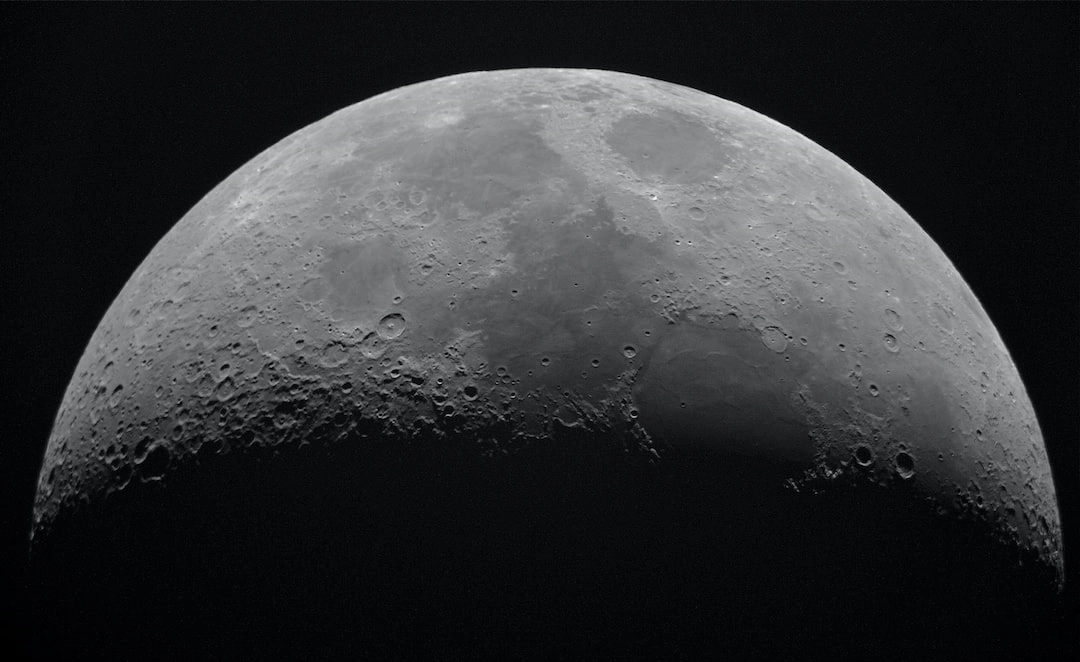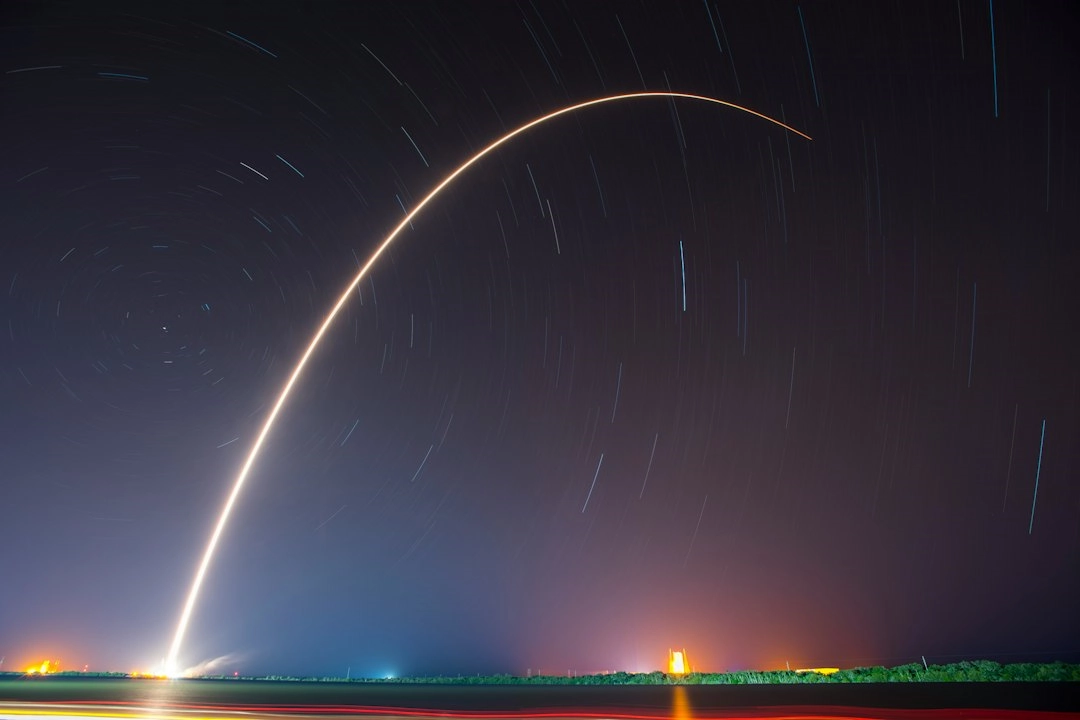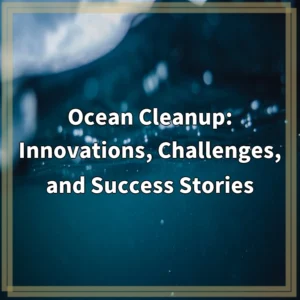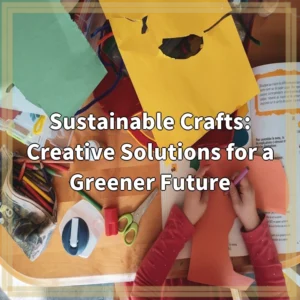Unveiling the Sustainability Frontier: Exploring Sustainable Research in Space
What it is:
Unveiling the Sustainability Frontier: Exploring Sustainable Research in Space delves into the concept of sustainability in the context of space exploration. It explores how researchers and scientists are seeking innovative ways to ensure that space exploration not only expands human knowledge but also minimizes its environmental impact.
Real-world problems:
1. Resource depletion: Space missions require vast amounts of resources, including fuel, water, and food. The challenge lies in finding sustainable methods to conserve and efficiently utilize these resources to minimize depletion and waste.
2. Waste management: Space missions generate a significant amount of waste, including discarded equipment, debris, and even human waste. Addressing the management and disposal of these waste materials is crucial to prevent pollution and ensure long-term sustainability.
3. Environmental impact: Space activities, such as rocket launches and satellite deployments, can have adverse effects on the Earth’s atmosphere and ecosystems. Developing environmentally friendly propulsion systems, minimizing chemical pollutants, and mitigating the impact of space debris are pressing challenges for sustainable space exploration.
4. Energy consumption: Powering space missions requires substantial amounts of energy. Finding renewable and efficient energy sources, such as solar panels or nuclear propulsion, is necessary to reduce dependence on limited resources like fossil fuels.
5. Health and well-being of astronauts: Ensuring the physical and mental well-being of astronauts during extended space missions is crucial. Sustainable research focuses on developing better life support systems, innovations in food production, and psychological support mechanisms to enhance the overall sustainability of human presence in space.
Solving for Space: Breaking Barriers Towards Sustainable Space Exploration
What it is:
Solving for Space: Breaking Barriers Towards Sustainable Space Exploration explores the various challenges involved in achieving sustainability in space exploration. It highlights the importance of finding innovative solutions to overcome these barriers and pave the way for a sustainable future in space.
Real-world problems:
1. Cost constraints: Space missions are often limited by budgetary constraints. Implementing sustainable practices requires significant investments in research, development, and new technologies. Overcoming these cost constraints and making sustainability financially viable is a key challenge.
2. International cooperation: Space exploration involves collaboration between countries and organizations. Global cooperation is necessary to address environmental and sustainability concerns on a broader scale. Building consensus and collaboration among different stakeholders pose challenges in implementing sustainable practices.
3. Regulatory frameworks: Establishing legal and regulatory frameworks to govern sustainable space exploration is essential. Developing international guidelines and agreements to ensure responsible behavior in space, including waste management and pollution prevention, is a complex yet critical aspect of sustainability in space.
4. Technological limitations: Sustainable space exploration often requires the development of new technologies and innovative solutions. Overcoming technological limitations, such as efficient propulsion systems, advanced recycling methods, and reliable life support systems, is crucial for achieving sustainable practices in space.
5. Education and awareness: Promoting education and awareness about the importance of sustainability in space exploration is vital. Encouraging scientists, engineers, and the general public to embrace sustainable practices and recognize the long-term benefits is a challenge that needs to be addressed to drive change.
Beyond the Bounds: Embracing Sustainable Practices in Pushing the Frontiers of Space
What it is:
Beyond the Bounds: Embracing Sustainable Practices in Pushing the Frontiers of Space explores the need for sustainable practices as humans venture further into space. It emphasizes the importance of balancing exploration and preservation to ensure a sustainable and responsible approach to space exploration.
Real-world problems:
1. Planetary protection: As we explore other celestial bodies, such as Mars or the Moon, it becomes crucial to prevent contamination by Earth’s organisms and safeguard the potential for extraterrestrial life. Designing missions and equipment that minimize contamination risk is a real-world challenge in sustainable space exploration.
2. Space debris mitigation: The increasing amount of space debris poses risks to operational satellites and spacecraft. Developing strategies to actively remove debris from orbit and implementing sustainable design principles for future missions can help mitigate the challenges posed by space debris.
3. Long-duration human space travel: As missions extend beyond Earth’s orbit, ensuring the sustainability of human presence becomes a significant challenge. Providing reliable life support, waste management, and psychological support for extended durations in space are critical aspects of sustainable space exploration.
4. Environmental impact assessments: Conducting comprehensive environmental impact assessments for space missions is crucial. Understanding potential impacts on celestial bodies, such as geological formations or potential water sources, helps shape sustainable exploration strategies and minimize negative consequences of human activities.
5. Ethical considerations: Exploring space raises ethical dilemmas regarding resource utilization, colonization, and potential interference with extraterrestrial realms. Addressing these ethical considerations through open dialogue and responsible decision-making is essential to ensure sustainable and ethical practices in space.
Passport to a Green Universe: Sustainability in Space Exploration
What it is:
Passport to a Green Universe: Sustainability in Space Exploration examines the role of sustainability in expanding humanity’s presence in the universe. It outlines the need to adopt sustainable practices as we explore and colonize other worlds to preserve our planet’s resources and minimize adverse impacts on celestial bodies.
Real-world problems:
1. Resource utilization on other planets: Sustainable utilization of resources on other planets is crucial to minimize the need for transportation from Earth. Developing methods for extracting and utilizing resources, such as water or minerals, in a sustainable manner poses challenges in sustainable space exploration.
2. Energy requirements on other planets: Establishing sustainable energy sources on other planets is essential for long-term colonization. Utilizing solar power, nuclear power, or other renewable energy sources can reduce the dependence on limited resources and enable sustainable human presence in space.
3. Habitat design and sustainability: Designing habitats that are energy-efficient, able to withstand extreme conditions, and considerate of human health and well-being is critical. Sustainable habitat design ensures a higher quality of life for astronauts and reduces environmental impact during long-duration space missions or colonization attempts.
4. Interplanetary transportation: Minimizing the carbon footprint and environmental impact of interplanetary transportation is a key challenge. Developing sustainable propulsion technologies and considering trajectory optimization techniques can help reduce the energy consumption and pollution associated with space travel.
5. Preservation of celestial bodies: Avoiding irreversible damage to the environments of celestial bodies is a pressing concern. Implementing strict environmental protection measures and educating astronauts about responsible behavior and respect for the unique ecosystems and geological features of other planets is essential.
EcoAstro: Unleashing Potentials for Sustainable Research in Space
What it is:
EcoAstro: Unleashing Potentials for Sustainable Research in Space explores the intersection of ecology and astronomy, highlighting the potential for sustainable research and exploration. It explores how adopting ecological principles and sustainable practices can enhance our understanding of the universe while preserving its natural balance.
Real-world problems:
1. Impact on Earth-based ecosystems: Ground-based astronomical observations can have a localized impact on ecosystems due to the presence of observatories or radiofrequency interference. Implementing sustainable practices, minimizing light pollution, and considering the ecological impact of astronomical research are crucial for sustainable research in space.
2. Sustainable data collection: Gathering astronomical data requires resources such as energy, data storage, and computing power. Adopting sustainable data collection practices, such as optimizing observational strategies and minimizing data processing needs, can help reduce the environmental footprint of astronomical research.
3. Exploration of environmentally sensitive areas: Some astronomical research projects involve studying celestial bodies that are environmentally sensitive, such as pristine craters or ancient impact sites. Implementing stringent guidelines to minimize disturbance and adopting sustainable research methods in these areas is essential.
4. Collaboration for conservation efforts: Combining efforts between astronomers and conservationists can lead to mutually beneficial collaborations. Using astronomical technologies and expertise to monitor environmental changes and support conservation efforts contributes to both ecological sustainability and scientific progress.
5. Green space technologies: The development and utilization of environmentally friendly technologies in space research can significantly contribute to sustainability. These technologies may include solar-powered satellites, efficient propulsion systems, and sustainable waste management systems to minimize the environmental impact of space-based research.

Solutions for Sustainable Research in Space Exploration
Here are some potential solutions to address the real-world problems associated with sustainable research in space exploration:
1. Resource Management and Efficiency:
Implementing advanced resource management techniques, such as recycling systems and closed-loop life support systems, can significantly reduce the depletion of resources and minimize waste production during space missions.
2. Waste Reduction and Management:
Developing efficient waste management systems on spacecraft and implementing strategies to mitigate the accumulation of space debris can help reduce the environmental impact and potential hazards associated with space missions.
3. Development of Sustainable Propulsion:
Investing in research and development of sustainable propulsion technologies, such as electric propulsion, ion drives, or solar sails, can minimize the use of hazardous propellants and reduce energy consumption during space missions.
4. Renewable Energy Sources:
Exploring the use of renewable energy sources, such as solar power or nuclear propulsion, can provide sustainable and clean energy for space missions, reducing reliance on limited resources and minimizing carbon emissions.
5. Collaboration and International Cooperation:
Promoting collaboration between space agencies and organizations worldwide encourages the sharing of knowledge, resources, and best practices. International cooperation can lead to the development of common standards and regulations for sustainable space exploration.
6. Research and Development of New Technologies:
Investing in research and development of innovative technologies, such as efficient life support systems, advanced recycling methods, and sustainable habitats, can significantly contribute to making space missions more sustainable.
7. Education and Awareness:
Increasing education and awareness about sustainability in space exploration among scientists, engineers, policymakers, and the general public can drive the adoption of sustainable practices and promote responsible decision-making.
8. Environmental Impact Assessments:
Conducting comprehensive environmental impact assessments before and during space missions helps identify potential risks and develop mitigation strategies to minimize harm to celestial bodies and ecosystems.
9. Ethical Considerations:
Engaging in open dialogue and ethical decision-making when it comes to resource utilization, colonization, and potential interference with extraterrestrial realms ensures responsible and sustainable practices in space exploration.
10. Green Technologies and Practices:
Advancing green technologies, such as solar-powered satellites and efficient propulsion systems, and implementing sustainable practices in data collection and observation can contribute to reducing the environmental impact of space research.
By implementing these solutions and embracing sustainability, the future of space exploration can be shaped in a way that both expands our understanding of the universe and preserves the integrity of celestial bodies and our own planet.













